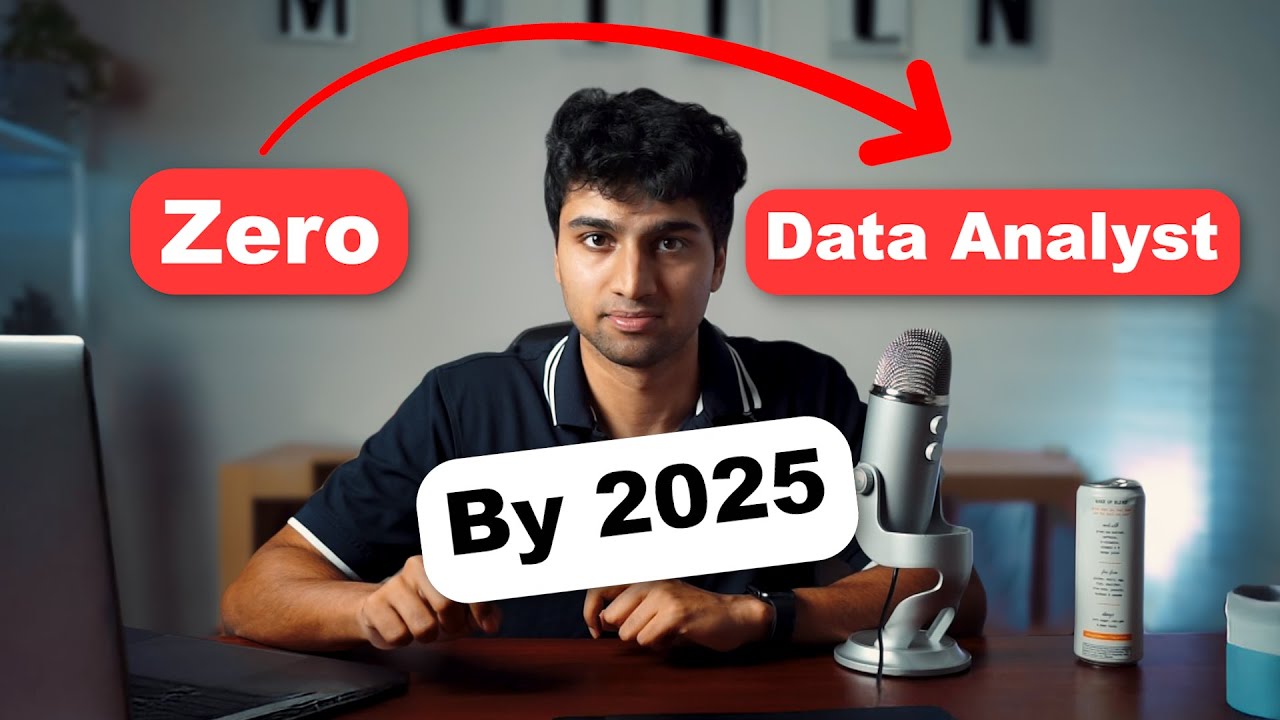How I'd Learn AI in 2024(If I could start over)
Summary
TLDRThe video provides a comprehensive roadmap for learning Artificial Intelligence (AI) without a formal degree. The speaker, Zano, explains that AI can be mastered in 6-8 months with dedication. Key topics include understanding the basics of AI, the importance of mathematics (linear algebra, calculus, and probability), and learning Python programming. Zano emphasizes practical learning through projects and recommends resources like YouTube channels, online courses, and books. He also discusses popular AI frameworks such as PyTorch, Scikit-Learn, and TensorFlow, and suggests practicing on platforms like Kaggle to build a strong portfolio for job applications.
Takeaways
- 💻 You don't need a degree to learn AI anymore—6-8 months of consistent learning with a roadmap is enough.
- 📚 Free resources exist for AI education, but paid resources provide comprehensive coverage.
- 🤖 AI involves recognizing patterns in data and using them to predict future outcomes. Machine learning is about how models learn these patterns.
- 🔢 95-99% of AI is based on mathematics—key areas include linear algebra, calculus, and probability.
- 📐 Linear algebra is vital for handling large datasets, while calculus helps optimize models, and probability is used to assess prediction confidence.
- 🐍 Python is the best programming language for AI and machine learning due to its wide usage and community support.
- 📊 Key Python libraries for AI are Pandas (data handling), NumPy (numerical operations), and Matplotlib (data visualization).
- 🧑💻 Suggested machine learning frameworks include PyTorch, Scikit-learn (beginner-friendly), and TensorFlow (more advanced).
- 🎓 Recommended free learning resources include Andrew Ng's Coursera courses and Andrej Karpathy's YouTube series for deep learning.
- 🏆 Kaggle is a platform for practicing AI and machine learning projects, offering datasets and competitions to build skills and portfolios.
Q & A
What is the main requirement to start learning AI according to the video?
-You don't need a degree to learn AI anymore. All you need is a laptop and a well-structured learning roadmap.
How long does it typically take to self-educate in AI?
-It generally takes 6 to 8 months of dedicated time investment to self-educate in AI.
What is artificial intelligence in simple terms?
-Artificial intelligence is a model or program that recognizes patterns in data and uses those patterns to predict future outcomes.
Why is mathematics so important in AI and machine learning?
-Mathematics is crucial because 95-99% of AI involves understanding and applying mathematical concepts, especially in areas like linear algebra, calculus, and probability.
Which programming language is most recommended for learning AI and machine learning?
-Python is the most widely recommended programming language for AI and machine learning due to its extensive support for machine learning models and community support.
What are the main Python modules used for data handling in AI?
-The main Python modules for data handling are Pandas (for data processing), NumPy (for numerical computations), and Matplotlib (for data visualization).
What are the key math topics to focus on for AI and machine learning?
-The key math topics are linear algebra, for working with large datasets, calculus, for optimizing models, and probability, for assessing the accuracy of model outputs.
What are the top frameworks for machine learning mentioned in the video?
-The top frameworks are PyTorch, Scikit-learn, and TensorFlow. PyTorch and Scikit-learn are more beginner-friendly, while TensorFlow is more advanced and abstracts much of the underlying math.
What free resources are recommended for learning AI?
-The video recommends free resources like the YouTube channel 'ThreeBlueOneBrown,' Khan Academy, Brilliant.org, and the free AI courses by Andrew Ng on Coursera.
Where can learners practice and compete in AI and machine learning problems?
-Learners can practice on Kaggle, a platform with data sets, practice problems, and competitions for AI and machine learning.
Outlines

هذا القسم متوفر فقط للمشتركين. يرجى الترقية للوصول إلى هذه الميزة.
قم بالترقية الآنMindmap

هذا القسم متوفر فقط للمشتركين. يرجى الترقية للوصول إلى هذه الميزة.
قم بالترقية الآنKeywords

هذا القسم متوفر فقط للمشتركين. يرجى الترقية للوصول إلى هذه الميزة.
قم بالترقية الآنHighlights

هذا القسم متوفر فقط للمشتركين. يرجى الترقية للوصول إلى هذه الميزة.
قم بالترقية الآنTranscripts

هذا القسم متوفر فقط للمشتركين. يرجى الترقية للوصول إلى هذه الميزة.
قم بالترقية الآنتصفح المزيد من مقاطع الفيديو ذات الصلة

How To Become A UI/UX Designer In 2024 Without A Degree 📈 | Saptarshi Prakash

How I'd Learn AI in 2024 (if I could start over)

The Complete Data Science Roadmap (Get Hired in 2025)

How to Learn AI & Machine Learning in 2025 | Full Roadmap

Perfect Roadmap To Become AI Engineers In 2024 With Free Videos And Materials

How to become a Data Analyst FAST (By 2025)
5.0 / 5 (0 votes)
